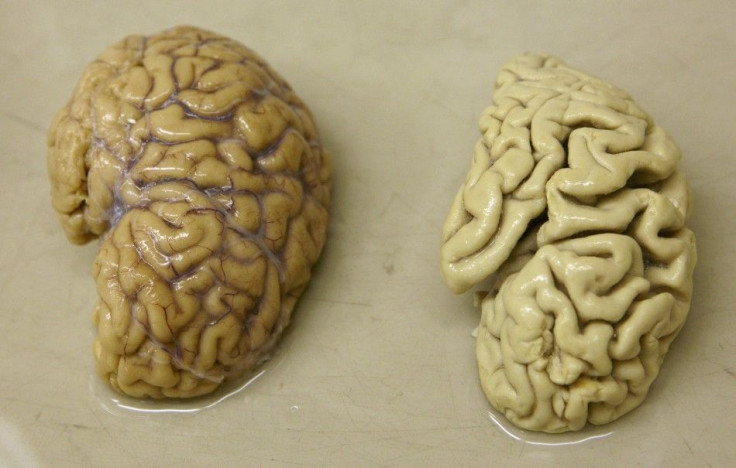Falls, Brain Scans, and Mice: Early Clues in Detecting Alzheimer's Disease

A recent study, performed on mice, published in the July issue of the Journal of Alzheimer's Disease found that grape seed polyphenols - a natural antioxidant - may help prevent the development or delay the progression of Alzheimer's disease.
Researchers from the New York City-based Mount Sinai School of Medicine studied the ability of grape-derived polyphenols to evade a specific form of beta-amyloid peptide, a substance in the brain that causes neurotoxins associated with Alzheimer disease.
Giulio Maria Pasinetti, M.D., Ph.D., lead researcher of the study, along with her collegues administered grape seed polyphenolic extracts to mice genetically determined to develop memory deficits and beta-amyloid neurotoxins. Since naturally occurring polyphenols are also generally commercially available as nutritional supplements and have negligible adverse events even after prolonged periods of treatment, this new finding holds significant promise as a preventive method or treatment, and is being tested in translational studies in Alzheimer's disease patients, Pasinetti told PsychCentral.com.
It will be critical to identify subjects who are at high risk of developing Alzheimer's disease, so that we can initiate treatments very early and possibly even in asymptomatic patients, added Pasinetti.
Other research has proven that early signals can possibly detect Alzheimer's disease.
In another study, conducted in France, researchers looked at brain scans of 125 older adults who were participating in a study of memory and aging. The seniors were also asked to keep track of how many times they fell over the course of eight months. Researchers compared a group of seniors with no signs of Alzheimer's to those whose brains showed early signs of the disease and discovered that the latter group was twice as likely to experience a fall.
The study found that of the 125 adults studied, 48 people experienced at least one fall and suggested that falls could indicate the need for an evaluation for the memory-robbing disease. An increased risk of falls was noted among individuals whose scans showed early signs of Alzheimer's.
Brain scans can find evidence of Alzheimer's a decade or more before it causes memory and thinking problems, but they're too expensive and impractical for routine use. A simple eye test and warning signs like falls could be a big help, the Associated Press reports.
Dr. Lee Goldstein of Boston University showed that a protein that makes up Alzheimer's brain plaque, can be measured in the lens of the eyes of some people with the disease, particularly Down syndrome patients who often are prone to Alzheimer's. It's a small study but suggestive and encouraging, he said. My hat's off to them for looking outside the brain for other areas where we might see other evidence of this disease.
More than 5.4 million Americans and 35 million people worldwide have Alzheimer's, the most common form of dementia. It has no cure and drugs only temporarily ease symptoms, so finding it early mostly helps patients and their families prepare and arrange care, according to the National Alzheimer's Association. If you see somebody who's having falls for no particular reason, the person should be evaluated for dementia, William Thies, the Alzheimer's Association's scientific director, told AP.
Common warning signs of Alzheimer's:
-Memory loss that disrupts daily life
-Trouble planning or solving problems
-Difficulty completing tasks
-Confusion with time or place
-Trouble understanding images and spatial relationships
-New problems with speaking or writing words
-Misplacing things and inability to retrace steps
-Decreased or poor judgment
-Social withdrawal
-Changes in mood or personality
For additional information on Alzheimer's. Visit sites:
- National Institute on Aging: http://www.nia.nih.gov/Alzheimers
- Alzheimer's Association: http://www.alz.org
© Copyright IBTimes 2025. All rights reserved.





















